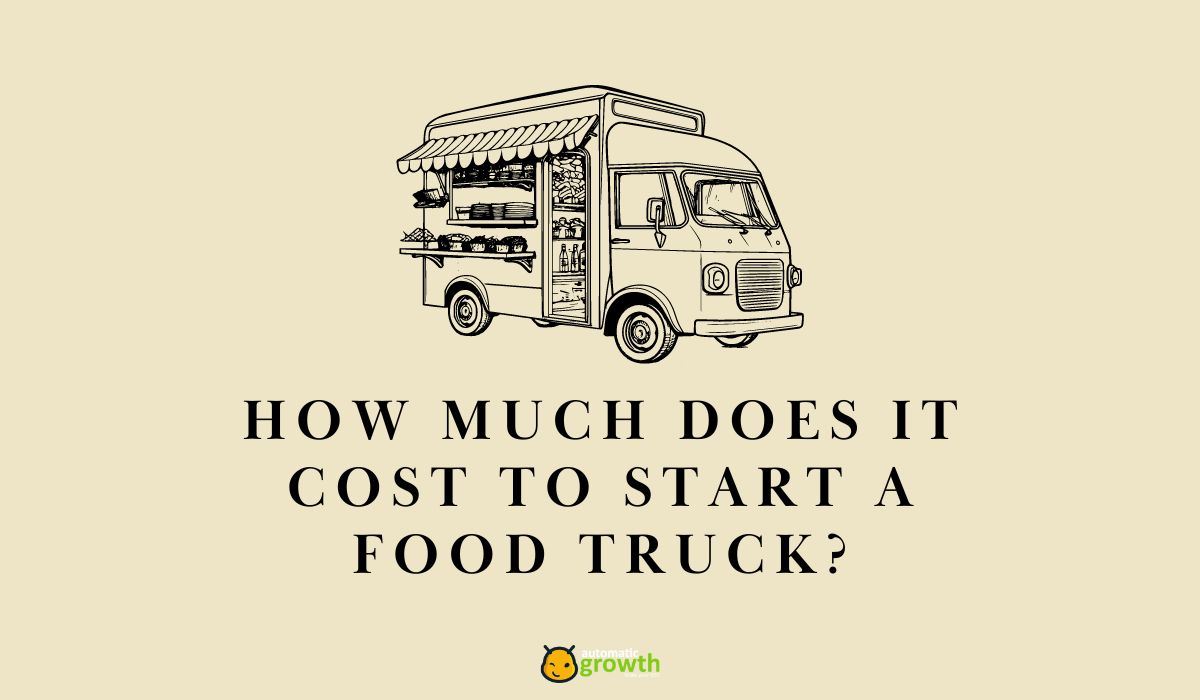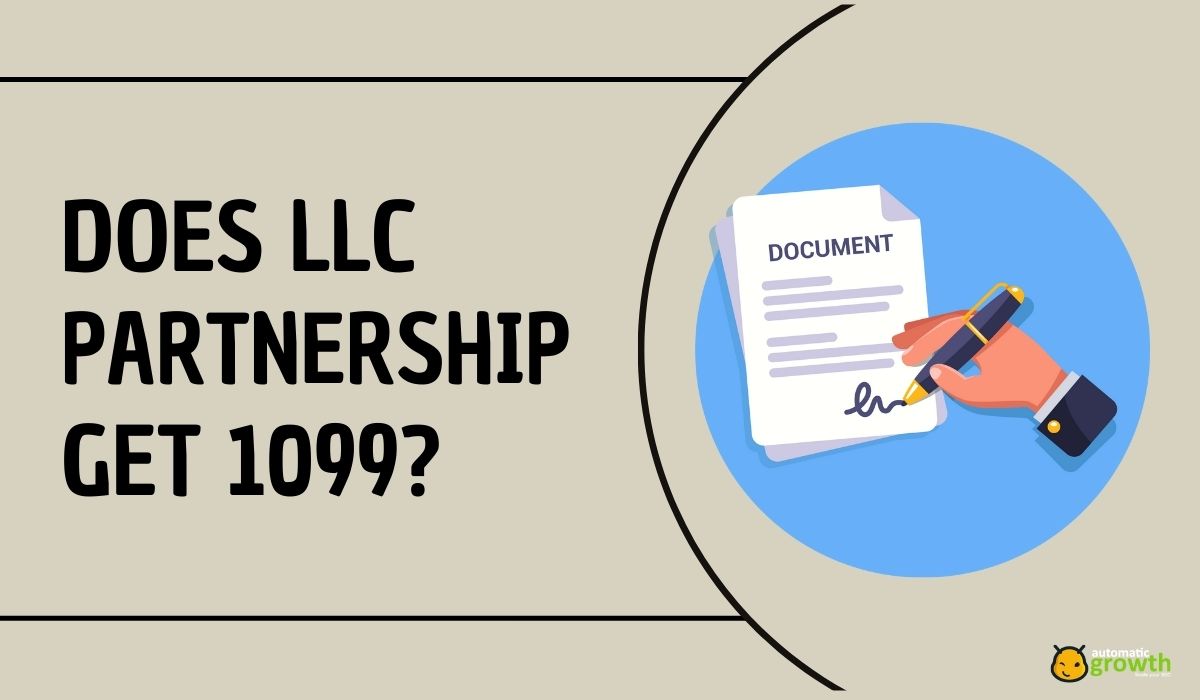Ever dreamt of hitting the road with your unique flavors and dishes, serving eager customers at every stop? Starting a food truck can be a thrilling venture, blending the joys of cooking with the spirit of entrepreneurship. However, before you can whip up delicacies in your mobile kitchen, it's crucial to understand the financial groundwork.
So, how much does it cost to start a food truck? From location to equipment to staffing, there are many factors that affect the startup costs of your own food truck business. Let's unpack the costs associated with launching a food truck, ensuring you're well-prepared for this exciting culinary adventure.
A Closer Look at the Thriving Food Truck Industry
Over the last few years, food trucks have shifted from a fleeting trend to a staple in American dining culture. This surge in popularity has led budding chefs and enterprising individuals to see food trucks as a more affordable and less risky venture compared to conventional restaurants.
A survey by Food Truck Nation revealed that the typical yearly earnings for a U.S. food truck range from $250,000 to $500,000. Impressively, some trucks rake in up to $1 million or even more.
Further research indicates that the upper quartile of food truck enterprises in the U.S. pulls in an average annual income between $250,000 and $500,000. Those in the top 10% surpass the $500,000 mark. While venturing into the food truck business can be lucrative, it also requires a hefty investment. So, how much does it cost to start a food truck?
Average Costs of Starting a Food Truck
While food trucks can be viewed as mini-restaurants on the move, it's a misconception to think that starting one would be significantly cheaper than establishing a traditional brick-and-mortar restaurants. Costs can still be substantial, especially when you build your food truck from scratch as opposed to buying an existing business.
On average, the cost of starting a food truck business in the United States can range from $50,000 to $180,000. This range reflects differences in food truck prices, kitchen gear, and chosen operating locations.
Yet, as seasoned restaurant owners can attest, initial investments are just the tip of the iceberg. It's equally crucial to factor in the ongoing monthly expenses of maintaining and operating a food truck.
Startup Costs of a Food Truck Business
Starting a food truck business requires a well-thought-out investment in various essential components. Let's delve into the primary startup costs that entrepreneurs need to consider:
1. Truck
This is the foundation of your business. Depending on whether you opt for a new or used vehicle, and the size and specifications you choose, this can be one of your most significant expenses. It's vital to ensure the truck is in good working condition to prevent future operational issues.
For top-tier quality, you can acquire a brand new, fully-equipped food truck from specialized sellers ranging between $50,000 and $175,000. Though this might seem like a hefty investment, the benefit is the peace of mind knowing that every appliance is in optimal condition. Plus, many of these new trucks and their equipment often come with manufacturer warranties.
Considering a used food truck? They typically fall in the price range of $30,000 to $100,000. Opting for a pre-owned trailer or cart could be more budget-friendly; however, you'd need an appropriate vehicle to haul it.
2. Kitchen Equipment and Tools
Outfitting your truck with the right cooking and preparation equipment is crucial. Quality and efficiency are key here, as you'll be working in a confined space with the need for fast turnover. Common appliances and cookware that you need include:
-
Griddles or flat tops
-
Deep fryers
-
Cooking ranges
-
Food warmers
-
Salamanders (broilers)
-
Charbroiling units
-
Cooling refrigerators
-
Deep freezers
-
Microwaving ovens
-
Toasting devices
-
Kettles for soups
Additionally, you shouldn't forget about other necessities like food preparation tools, cleaning supplies, and various cookware. For those planning to accept electronic payments, it's wise to invest in a Point of Sale (POS) system and ensure you have a reliable onboard WiFi connection.
3. Location (Purchase or Rent)
Depending on your business model, you might need to purchase a dedicated spot or pay rental fees for parking in prime locations, such as food truck parks, festivals, or popular streets. Some entrepreneurs also rent commercial kitchen space for prep work before heading out.
Securing a spot can set you back as much as $1,500 per month, especially in cities with a higher living cost, such as New York. In contrast, charges are likely to be more affordable in other regions.
Many cities offer both open-air and sheltered commissary parking spaces for rent. Although the outdoor choices tend to be more economical, they don't offer protection against weather conditions, making a space under cover more desirable.
4. Permits and License
Operating a food truck legally involves obtaining various permits and licenses. This can include health department permits, vending licenses, and potentially more, depending on local regulations. Learning the cost of a business license and other permits in your city can help you manage your startup costs.
Operational Costs of a Food Truck Business
Running a food truck goes beyond the initial setup and involves various recurring expenses to ensure smooth operations and continued growth. Let’s break down these operational costs to provide a clearer picture:
1. Inventory
-
Ingredients: Depending on your menu, the cost of raw materials can fluctuate. Fresh, organic, or specialty items generally have higher price points. Regularly monitoring market prices and establishing good relationships with suppliers can help manage costs.
-
Gas: This is a significant expense, given that your business is on wheels. Fuel costs can vary, so it's essential to budget for both long-haul trips and short commutes.
-
Supplies: This includes disposable items like napkins, cutlery, plates, cleaning materials, and more. Buying in bulk can often reduce costs.
2. Staff
Hiring and retaining staff can add up. Costs include salaries, training, uniforms, and benefits. It’s also important to account for occasional overtime or holiday pay.
3. Insurance and Maintenance
Obtaining insurance for your food truck business is essential. It protects your business from potential risks, from vehicular accidents to customer liabilities, which is crucial. Various policies, such as general liability, auto insurance, and worker's compensation, might be needed.
In addition to insurance, regular food truck maintenance must also be factored into your recurring expenses. Regular check-ups, repairs, and preventive measures ensure your truck is always in tip-top shape, ready to serve customers.
4. Parking and Storage
The cost of renting space, especially in high-demand areas, can be significant. Additionally, some cities have strict regulations about where trucks can operate, leading to additional permit or parking fees.
5. Utilities
This includes electricity, water, and waste disposal, among others. Depending on your setup, you may need to factor in costs for generators, water tanks, or waste removal services.
6. Marketing
To attract and retain customers, investments in branding, advertising, social media campaigns, and event participation are vital. Whether you're investing in online ads, social media promotions, or even loyalty programs, marketing expenses play a key role in ensuring your food truck stands out in a crowded market.
Tips and Tricks to Minimize Your Food Truck Startup Costs
Running a food truck can be as challenging financially as it is rewarding gastronomically. But fear not, for with the right strategies in place, you can effectively rein in your expenses. Here are some ways to cut costs without compromising on the quality of your offerings:
Optimize Inventory Management
Consider buying ingredients and supplies in bulk to take advantage of discounted rates. While it’s tempting to stock up, be wary of perishable items to avoid spoilage. Additionally, adapting your menu to incorporate seasonal ingredients can both reduce costs and ensure freshness. On the operational side, implementing a first-in, first-out (FIFO) system can help reduce waste.
Efficient Staffing
The key is to get more from less. Train your staff to handle multiple roles so that during off-peak hours, you can operate efficiently with a leaner team. Matching staffing levels with the anticipated demand using scheduling tools can also prevent overstaffing during slower times.
Insurance Discounts
Don't just settle for the first insurance quote you get. Shop around, negotiate, and look for providers that reward safe driving or offer no-claim bonuses. This can significantly reduce your annual insurance costs.
Regular Maintenance Checks
The saying "a stitch in time saves nine" holds true here. Regular preventive maintenance can help identify and rectify minor issues before they balloon into major, cost-intensive problems.
Negotiate Parking and Storage Fees
Instead of paying premium rates for parking, consider forming partnerships with local businesses. You can offer to drive traffic to their location in exchange for a parking spot. If you're renting a space long-term, try to negotiate a better rate.
Conserve Utilities
Investing upfront in energy-efficient appliances and lighting can lead to significant long-term savings. Also, being mindful of turning off equipment when not in use and exploring sustainable options like rainwater collection can reduce utility bills.
Frequently Asked Questions
1. How much does it cost to start a food truck?
The initial investment for a food truck can vary widely based on factors like the condition of the truck (new vs. used), the sophistication of the kitchen equipment, and the region in which you're operating. However, costs typically range from $50,000 to $180,000.
2. Are used food trucks a good option to consider?
Yes, used food trucks can be a cost-effective option, often priced between $30,000 and $100,000. However, it's crucial to thoroughly inspect any used truck for potential issues, ensuring the kitchen equipment is up to code and in good working order.
3. Apart from the truck itself, what other major costs should I consider?
Other significant expenses include kitchen equipment and tools, location (if you’re considering purchasing or renting a space), permits, licenses, and initial inventory for ingredients and supplies.
4. How much does it cost to park and store the food truck?
Parking and storage costs can vary. In high-cost cities like New York, spaces can go up to $1,500/month. However, in smaller cities or areas with a lower cost of living, fees can be significantly less. It's essential to also factor in whether the parking is indoors (protecting against elements) or outdoors.
5. How about ongoing operational costs?
Operational costs include inventory replenishment, staffing salaries, maintenance, parking, utilities, and marketing. These expenses can fluctuate based on factors like location, season, and business volume.
Launch Your Culinary Dream on the Right Footing
Embarking on the food truck journey is an exciting venture that combines culinary passion with entrepreneurial spirit. While starting a food truck might seem daunting initially, understanding the costs involved can set you on a path to success. Careful planning, budgeting, and a dash of creativity are essential ingredients for success in this mobile culinary world.
Curious about diving deeper into the food industry? If you've been wondering about the cost of opening a traditional brick-and-mortar restaurant, our next guide dives into every nook and cranny. Discover how much it costs to open a restaurant and weigh your options effectively. Start your culinary dream the right way!
















